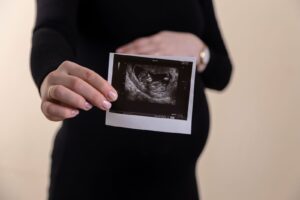The number of fertility patients travelling to European countries for IVF treatment has been steadily increasing over the last decade. But why travel abroad when most countries offer fertility treatment to their own citizens? Reasons for these reproductive journeys are manifold. My own research and several existing studies (Frankfurth 2020; Whittaker, Inhorn, Shenfield 2019) from colleagues suggest that legal restrictions, treatment availability and financial cost are some of the most common factors that drive patients to seek fertility treatment abroad.
Why more and more patients go to countries like Spain, Greece and the Czech Republic for IVF treatment
Most countries have some kind of legislation that determines who can access IVF treatment and what kinds of fertility treatments are allowed. As such, it is not surprising that legal restrictions play a big role in people’s decision to travel abroad for fertility treatment. According to data collected by ESHRE in 2020, a total of 11 out of 43 European countries offer fertility treatment only to heterosexual couples with a diagnosis of infertility. Single women or lesbian couples are therefore excluded from fertility treatment in these countries and find themselves forced to travel abroad to access treatments like sperm donation. National age restrictions also play a role when travelling abroad, as some countries and clinics stop treatment for women at around 46 years, while others allow it up to at least 50 years of age.
Depending on the country, the national legislation may also prohibit or restrict access to treatment options, such as preimplantation genetic diagno-sis (PGD) and testing (PGT), surrogacy or egg donation, and determine if egg and sperm donation must be open or anonymous. Countries like Spain, Northern Cyprus and Czech Republic, in which egg donors remain anonymous, often only have a waiting time of 1-3 months until an egg donor is found. This is a strong pull factor for women living in the UK, Austria or the Netherlands, for example, in which anonymous donation is prohibited and waiting time can last up to 18 months until an ‘open’ egg donor is found. So, unsurprisingly, if the waiting time for a donor is one year or longer, many intended parents seek egg donation treatment abroad.
Lastly, many fertility patients also indicate financial cost as a relevant factor when deciding to travel abroad. This is especially the case for women and couples travelling to countries, such as Greece, the Czech Republic and Northern Cyprus, in which an IVF cycle may ‘only’ cost about 3,000 Euros, or 5,000 Euros with donated eggs. The hope for higher success rates is often mentioned by patients going to Spain, which is a key global destination for fertility travel and internationally known for its state-of-the-art fertility clinics.
Main reasons why fertility patients travel abroad:
- legal restrictions at home
- more treatment options abroad
- less waiting time (especially for egg donation)
- treatment availability for single women and lesbian couples
- treatment options for women above 45 years of age
- more affordable IVF treatment
- hope for increased success rate
How to pick the right country for IVF treatment?
All intended parents who seek treatment abroad are usually faced with the same questions, “Which country should I go to?”, “How do I find out about the availability of treatments, waiting time and cost in a given country?”, and perhaps most importantly, “Where can I find information that is reliable and objective?”. To provide some answers to these questions, let me provide you with a quick overview of 7 popular IVF destinations in Europe. Many of these insights are based on my own (academic) research as well as through first-hand accounts from women and couples travelling to these countries who I’ve supported in their journeys as a fertility coach. Needless to say, there are other great destinations, too. Not being mentioned on this list does in no way imply that other European countries are not popular or offer no great options to intended parents.
Quick overview: The 7 most popular IVF destinations in Europe in alphabetical order
Czech Republic
The Czech Republic is the second most popular country for fertility treatments in Europe, right after Spain. Many couples on mainland Europe find its location convenient, as it enables them to travel there by car, or very quickly by plane. Clinics in the Czech Republic are particularly popular not least because of their combination of quality treatment with relatively affordable costs. They are therefore particularly attractive to patients coming from countries, such as Germany, Austria, Switzerland, Denmark, and the UK. Another valued factor is the waiting time for egg donation (1-3 months on average). According to Czech law, all donations must be strictly anonymous. Similar to Spain and Cyprus, there is no central national register of donors in the Czech Republic. Almost all fertility clinics have English-speaking staff and clinicians; many also speak German.
| Country: | Czech Republic |
|---|---|
| Treats heterosexual couples, single women and lesbian couples? | heterosexual couples: yes, single women and lesbian couples: no |
| Maximum patient age | women: 48 |
| Average treatment cost for IVF | about 3,000 EUR, without medication |
| Average treatment cost for IVF with do- nated eggs | about 5,000 EUR, without medication |
| Open or anonymous egg / sperm donation? | anonymous |
Denmark
Denmark is becoming increasingly popular as a fertility destination. Reflecting its relatively small population however it only features a total of 19 fertility clinics. It is therefore not surprising that the total number of international patients is far less than in Spain, Greece or the Czech Republic. Denmark’s clinics are mostly located in and around Copenhagen, but there are also some closer to the German border. Due to the physical proximity, fertility patients from Germany and Sweden are some of the most common international fertility patients in Denmark. Denmark is one of the few countries in which egg and sperm donation can be open or anonymous, depending on the donor’s preference. Denmark’s liberal legislation for assisted reproductive treatment means that single women and lesbian couples are welcomed here as much as heterosexual couples. The high quality of the medical treatment and the individualised approach taken by the clinicians are often cited as pull factors by international patients travelling to Denmark.
| Country: | Denmark |
|---|---|
| Treats heterosexual couples, single women and lesbian couples? | yes |
| Maximum patient age | women: 45 |
| Average treatment cost for IVF | about 3,500 EUR, without medication |
| Average treatment cost for IVF with do- nated eggs | about 8,000 EUR, without medication |
| Open or anonymous egg / sperm donation? | open and anonymous options |
Greece
Greece has over 50 IVF clinics, many of which are located in Athens. They are often specialised in treating international fertility patients, so most of them have English-speaking staff and clinicians. Some even speak additional languages, such as German, Italian and Spanish. Like most other countries which offer anonymous egg and sperm donation, there is only a 1-3 month wait to find a suitable donor. Greece features some of the lowest treatment costs in Europe, which is often cited as a compelling advantage for international patients, some of whom come from as far as the United States. When heterosexual couples undergoing fertility treatment in Greece are not married, they need a notarial deed confirming that the male partner agrees to be the legal father of potential children resulting from the treatment. This can be easily done in Greece and the clinics usually help with it.
| Country: | Greece |
|---|---|
| Treats heterosexual couples, single women and lesbian couples? | heterosexual couples and single women: yes; lesbian couples: no |
| Maximum patient age | women: 50 |
| Average treatment cost for IVF | 3,000 EUR, without medication |
| Average treatment cost for IVF with do- nated eggs | 5,000 EUR, without medication |
| Open or anonymous egg / sperm donation? | anonymous |
Northern Cyprus
Still unknown to many, Northern Cyprus is becoming an increasingly popular destination for fertility travel. It is particularly sought after for its combination of competitive treatment costs, good success rates, and liberal medical practices. Single woman and lesbian couples, too, find that Northern Cyprus is a possible option on their journey to parenthood. Some selected clinics in Cyprus may reveal the sex of an embryo when conducting genetic screenings. This technically allows sex selection before an embryo is transferred, which is not allowed in most countries except for the US. Cyprus is also one of the few countries where clinicians can transfer embryos to a surrogate. Most clinics are accustomed to having international patients and have English-speaking staff and clinicians.
| Country: | Northern Cyprus |
|---|---|
| Treats heterosexual couples, single women and lesbian couples? | yes |
| Maximum patient age | women: 45, or 55 (subject to approval) |
| Average treatment cost for IVF | 2,500-3,000 EUR, without medication |
| Average treatment cost for IVF with do- nated eggs | 5,000 EUR, without medication |
| Open or anonymous egg / sperm donation? | anonymous |
Portugal
More and more international fertility patients are travelling to Portugal each year, as the word about its excellent medical standards and high success rates has been spreading. In 2018, Portugal changed its law and made all donations non-anonymous. Since then, Portugal has become particularly popular for women and couples wanting an open egg donor with relatively little waiting time. The regulation of IVF treatment in Portugal is liberal but well-regulated, protecting patient rights and allowing single women and lesbian couples to access the same kinds of treatments as heterosexual couples. The implementation of a national registry for all fertility treatments and donors reflects these exemplary regulatory standards, which ensures, for example, that women do not donate their eggs more than four times. Most fertility clinics are in places that are easy to reach by plane, such as Lisbon and Porto. Portuguese clinics normally have at least one staff and clinician who speaks English.
| Country: | Portugal |
|---|---|
| Treats heterosexual couples, single women and lesbian couples? | yes |
| Maximum patient age | women: 50 |
| Average treatment cost for IVF | about 4,300 EUR, without medication |
| Average treatment cost for IVF with do- nated eggs | about 7,000 EUR, without medication |
| Open or anonymous egg / sperm donation? | open / non-anonymous |
Spain
Spain is probably the most popular country for IVF and egg donation worldwide. It is estimated that about one third of all egg donation treatments are undertaken here. Spain features some of the most experienced and well-known reproductive clinicians. When it comes to the latest reproductive technologies and methods, you’ll likely find them in Spanish clinics. Treatment costs vary a lot among different clinics in Spain, so it may be worth checking out several clinics before deciding on one in particular. Clinicians and staff usually speak English, and sometimes even other languages like German, Italian and French. Egg donor waiting time ranges from 1-3 months. Due to Covid-19 many clinics now rely on frozen eggs that are available immediately. Spain is also particularly suitable for intended parents with challenging fertility problems that require individual attention, monitoring and testing: patients in Spain usually remark positively on the amount of attention and time that is devoted to them in the clinics
| Country: | Spain |
|---|---|
| Treats heterosexual couples, single women and lesbian couples? | yes |
| Maximum patient age | women: usually 50 (maximum 52) |
| Average treatment cost for IVF | 4,000 - 7,000 EUR, without medication |
| Average treatment cost for IVF with do- nated eggs | 6,000 - 8,500 EUR, without medication |
| Open or anonymous egg / sperm donation? | anonymous |
The final decision about where to travel for IVF treatment abroad…
This is usually based on a blend of facts, pragmatism and a good feeling. In the first instance, gathering information and facts is most important, “Is the treatment available to me in that country and how much does it cost?”. Once that is sorted, intended parents are guided by more pragmatic questions, “How long is the waiting time, are there any direct flight connections, and do the staff speak English?”. Next to finding facts and making pragmatic choices, many IVF patients report that selecting a country abroad “must also feel good to be good” (Frankfurth 2020). Sometimes this feeling is just an unexplained gut instinct or a hunch. Other times, it is tied to people having a positive image of a country. This may be after their first contact or visit to a fertility clinic, or because of family, friends, films or literature related to that country and its people. Ultimately, it might help to recall that the most important decisions in life are made when both heart and mind are aligned. This also applies to finding a country for your fertility treatment abroad. My advice is: Do some proper research, learn about your best options. And don’t forget to listen to your gut feeling.
Sources
Frankfurth, Yvonne. 2020. „Navigating Openness and Secrecy – Germans traveling abroad for egg donation in Beier, K., Brügge, C., Thorn, P., Wiesemann, C. (Hrsg.). „Assistierte Reproduktion mit Hilfe Dritter“. Medizin – Ethik – Psychologie – Recht. Berlin Heidelberg: Springer-Verlag. https://www.springer.com/de/book/9783662602973
Whittaker A, Inhorn MC, Shenfield F. Globalised quests for assisted conception: Reproductive travel for infertility and involuntary childlessness. Glob Public Health. 2019 Dec;14(12):1669-1688. doi: 10.1080/17441692.2019.1627479. Epub 2019 Jun 17. https://pubmed.ncbi.nlm.nih.gov/31204900/






